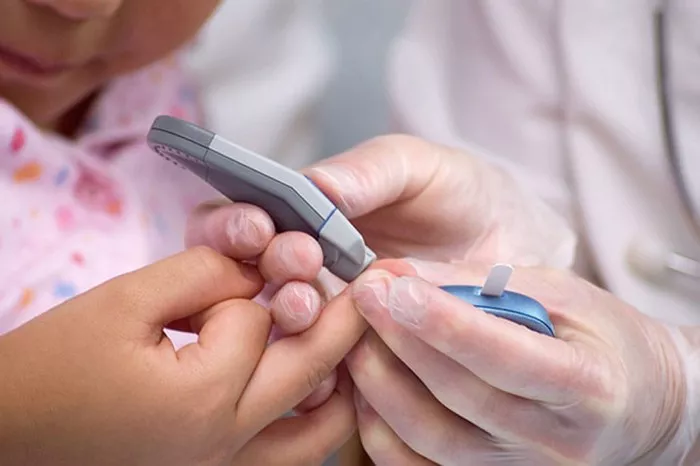Diabetes mellitus, a chronic metabolic disorder characterized by elevated blood glucose levels, affects millions worldwide. Among its various forms, insulin dependent diabetes, commonly referred to as type 1 diabetes (T1D), represents a distinct subset where insulin therapy is essential for survival and optimal health. This article aims to delve into the intricate facets of insulin dependent diabetes, covering its pathophysiology, clinical manifestations, management strategies, and emerging research directions.
Pathophysiology of Insulin Dependent Diabetes
Insulin dependent diabetes arises from autoimmune destruction of pancreatic beta cells, which are responsible for producing insulin—the hormone crucial for regulating blood glucose levels. This autoimmune attack leads to an absolute deficiency of insulin, distinguishing it from other types of diabetes where insulin resistance or impaired insulin secretion predominates.
The hallmark of T1D is the presence of autoantibodies directed against beta cell antigens, such as insulin itself, glutamic acid decarboxylase (GAD), and insulinoma-associated antigen-2 (IA-2). These autoantibodies serve as clinical markers and reflect the ongoing autoimmune process that culminates in beta cell destruction.
Clinical Presentation and Diagnosis
The onset of insulin dependent diabetes typically occurs in childhood or adolescence, although it can manifest at any age. Patients often present with classic symptoms of hyperglycemia, including polyuria (excessive urination), polydipsia (excessive thirst), and unexplained weight loss despite increased appetite. In severe cases, diabetic ketoacidosis (DKA) may be the initial presentation, necessitating immediate medical attention due to its potentially life-threatening complications.
Diagnosis of T1D involves assessing clinical symptoms, measuring blood glucose levels (both fasting and random), and confirming the presence of autoantibodies against beta cell antigens. Additional tests, such as C-peptide levels, help differentiate T1D from other forms of diabetes where residual insulin secretion may still occur.
Management Strategies
Effective management of insulin dependent diabetes revolves around restoring insulin levels through exogenous insulin administration, closely monitoring blood glucose levels, and adopting a multidimensional approach to care. The cornerstone of therapy remains multiple daily insulin injections or insulin infusion via continuous subcutaneous insulin infusion (CSII), commonly known as insulin pumps.
Insulin Therapy
Insulin therapy aims to mimic physiological insulin secretion patterns, which involves basal (background) insulin to maintain fasting glucose levels and bolus (mealtime) insulin to counteract postprandial glucose excursions. Modern insulin analogs offer improved pharmacokinetic profiles, enhancing flexibility and precision in insulin dosing.
Blood Glucose Monitoring
Regular self-monitoring of blood glucose (SMBG) forms the basis for diabetes management, allowing patients to adjust insulin doses based on daily fluctuations in glucose levels. Continuous glucose monitoring (CGM) systems provide real-time glucose readings and trend data, empowering individuals with T1D to make informed decisions regarding insulin dosing and lifestyle modifications.
Comprehensive Diabetes Care
Beyond insulin therapy and glucose monitoring, comprehensive diabetes care encompasses dietary management, physical activity, and psychosocial support. Carbohydrate counting and glycemic index considerations assist in optimizing glycemic control, while structured diabetes education programs empower patients and caregivers alike.
Challenges in Insulin Dependent Diabetes Management
Despite advances in diabetes care, managing T1D presents several challenges that warrant ongoing research and clinical innovation:
Hypoglycemia: The risk of hypoglycemia remains a critical concern, necessitating tailored insulin regimens and patient education to mitigate its occurrence.
Technology Integration: Integrating diabetes technology, such as insulin pumps and CGM systems, requires patient education and ongoing support to maximize clinical outcomes.
Psychosocial Impact: The emotional and psychological impact of living with a chronic disease like T1D underscores the need for holistic care approaches that address mental health and quality of life.
Emerging Therapies and Research Directions
Advancements in immunotherapy, beta cell regeneration, and precision medicine offer promising avenues for future diabetes management:
Immunomodulatory Therapies: Interventions aimed at modulating the immune system to preserve beta cell function or induce immune tolerance hold potential for delaying or halting disease progression in newly diagnosed individuals.
Beta Cell Replacement: Research into beta cell transplantation and stem cell-derived beta cells seeks to restore endogenous insulinproduction in individuals with T1D.
Precision Medicine: Tailoring diabetes management based on genetic and metabolic profiles promises personalized therapeutic strategies that optimize outcomes and minimize treatment-related complications.
See also: What To Do To Reverse Prediabetes
Conclusion
Insulin dependent diabetes, or type 1 diabetes, represents a complex interplay of genetic predisposition, autoimmune processes, and environmental factors. Effective management hinges on maintaining physiological insulin levels through exogenous administration, vigilant glucose monitoring, and comprehensive diabetes care. Ongoing research into immunotherapy, beta cell regeneration, and precision medicine underscores a promising future for individuals living with T1D.
By understanding the pathophysiology, clinical manifestations, and evolving management strategies of insulin dependent diabetes, healthcare providers and patients alike can collaborate towards achieving optimal glycemic control and enhancing quality of life in the face of this chronic condition.
In conclusion, while T1D presents daily challenges, ongoing advancements offer hope for improved outcomes and eventual cure, reaffirming the resilience and determination of the diabetes community in navigating the complexities of insulin dependent diabetes.
Related topics:
What To Do To Get Rid Of Diabetes

























